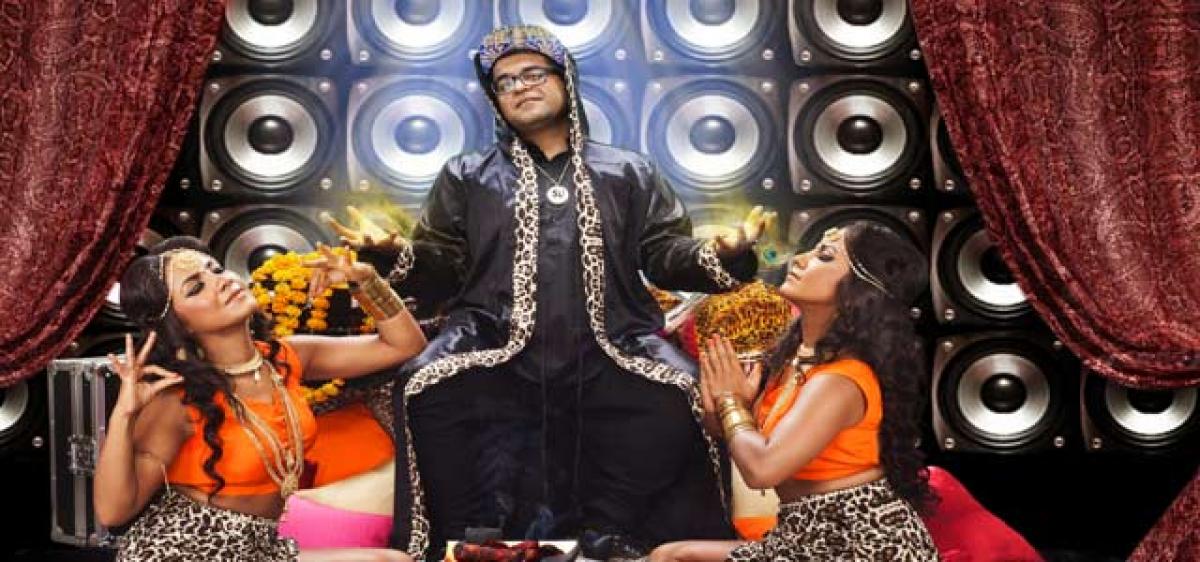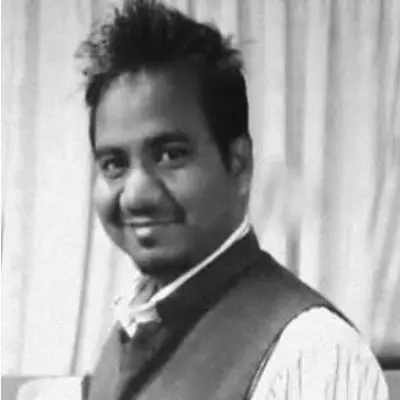Live
- ‘Get Set, Grow Summit 2024’ Focuses on Digital Detox for Families
- Stokes motivates his team to put in extra effort, says England pacer Potts
- From overcoming setbacks to leading India in U19 Women’s Asia Cup, Niki Prasad's amazing journey
- Driving Enterprise Security: Inside Venkata Reddy Thummala’s Leadership Journey
- Constitution debate: PM Modi hails 'Nari Shakti'; makes strong pitch for 'United Bharat’
- Abhijeet Bhardwaj: Revolutionizing Enterprise Analytics with Innovation and Expertise
- Bihar: Inquiry initiated against principal who went to buy veggies during school hours
- Press Sri Lankan Prez for release of Indian fishermen: TN Cong MP to EAM Jaishankar
- TN: DMK postpones executive meet due to heavy rains & Parliament session
- Porous silicon oxide electrodes can fix durability issues in batteries: Researchers
Just In

Su Real aka Suhrid Manchanda represents the new breed of Indian music producers who create and curate for the modern Indian dance floor and have actively shaped the “desi bass” movement alongside producers like Nucleya.
Su Real aka Suhrid Manchanda represents the new breed of Indian music producers who create and curate for the modern Indian dance floor and have actively shaped the “desi bass” movement alongside producers like Nucleya.
The Delhi-based producer believes that desi bass isn’t merely a genre of music but represents a window into the world of aspirations and tribulations of the Indian youth.
Su Real’s new album “Twerkistan” is the long-awaited full-length follow-up to 2014’s “Trapistan” and it has 16 explosive cross-genre tracks.
The album features songs in English and Hindi; there are catchy hooks for the festival fanatics as well as poetic nuance and pop culture references that would appeal to aficionados.
Ahead of his performance in the city, which is on Saturday, the spoke to The Hans India about the gig and more.
I need a lot of coffee, cigarettes, and separation from the outside world. I find my creative process is rather mechanical and mathematical, not at all what most people would expect
Excerpts:
What is the concept behind your new album?
My first album was title ‘Trapistan’ - the idea was to introduce the then-nascent “trap” music to Indian audiences. Trap music itself is a hybrid of hip-hop and EDM. To that, I added a heavy dose of “desi masala” in terms of Indian instruments and melodies.
‘Twerkistan’, is the next step of the saga. Now the focus shifts to the dance floor, and the raunchy, risqué move called “twerking” that has become so ubiquitous even Bollywood has co-opted it (“Beat Pe Booty” from ‘A Flying Jatt’).
In this album, I fused the sounds of traditional instruments and familiar eastern-tinged melodies with modern dance nano-genres like twerk, moombahton, soca, kuduro, hybrid trap and others. This time around, there are songs in Hindi as well. The aim is to get everybody dancing, no matter what your personal tastes in music or life.
What did you choose cross-genres tracks in ‘Twerkistan’?
I think it’s crucial to stay on top of trends that can change overnight. These days this has become the norm for music producers at a pop or commercial level.
It’s especially evident if you look at the output of producers like Skrillex, Diplo, David Guetta among others – not only do they have hits in a range of genres; most of their tracks are not so easily classifiable as one particular genre.
Anyway, I was always into the mash-up/bashment style of DJing where all genres are mixed – it adds more elements of surprise and excitement to the night.
Why you choose to have an animated music video for “Soldiers”?
Growing up I watched a lot of cartoons, and I still do, in fact, I almost prefer animated/illustrated content to real action. So I always wanted to have a cool video with an animated version of myself.
The theme for the song “Soldiers” being one of love and inclusion and I wanted to be able to spread the message far and wide. An animated video could especially help cut across a wider audience and reach the young India.
What is the idea behind your stage name 'Su Real'?
It was more about convenience than being cool! People abroad, as well as at home for that matter, as well as myself, found it a little strange to pronounce my real name – Suhrid, so it got shortened to Su.
After returning to Delhi in 2008 I found there were lots of Su’s - Sumit, Sudhir, Sunaina, etc. So as I started DJing more shows there, my moniker evolved into “Su Real” as a sort of an inside joke with friends.
From a PR in New York to DJ in India, tell us about this transition.
As a “career”, I got quite bored with PR. Working as a publicist for bands and rappers in the mid-2000’s, I did a lot of hard work for a lot of great music that did not sell as much as expected not only due to internet piracy but the sheer numbers of independent artistes competing for attention of US music fans. It was quite discouraging.
I actually left the US to get out of the music industry and explore other work and art-forms. And yet, here we are… The universe has a funny way of self-correcting!
When you compose a track what goes through your mind?
I need a lot of coffee, cigarettes, and separation from the outside world. I find my creative process is rather mechanical and mathematical, not at all what most people would expect. I look for established patterns and ideas and tweak them into something new.
Tell us about the genre desi bass.
When I first saw Nucleya perform it was around 2010 - there were less than 20 people in attendance that night, but immediately I realised, hey, this guy is on to something.
The East-West fusion of styles is actually common in India - whether we’re talking about Midival Punditz or Karsh Kale or AR Rahman or Bappi Lahiri or RD Burman. But with Nucleya, both of us were into the “global bass” scene where there were non-Indian producers all over the world.
Our “desi bass” was a natural evolution of all this. Out of that global bass scene, we first saw Moombahton and then Trap emerge. Now the formula is pretty established and it’s all about playing the game in new and exciting ways.
Do you get nervous before a show?
At club gigs, not so much. But there is a growing sense of urgency as I try to read the crowd and decide exactly what I’m going to play.
At festivals, these days, I don’t get nervous at all – the separation from the crowd makes it easier to perform a set with a plan and take the audience on a journey.
Whereas in a club environment the intimacy and immediacy forces one to sometimes cave into the crowd’s immediate demands.

© 2024 Hyderabad Media House Limited/The Hans India. All rights reserved. Powered by hocalwire.com







